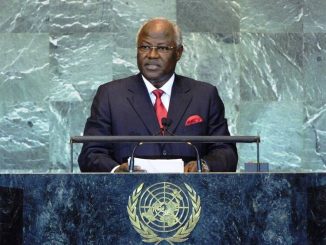
Tracing their roots to an exodus caused by a silkworm crisis that struck Lebanon in the mid-19th century, West Africa’s Lebanese community makes up a fraction of the country’s population.
The first Lebanese arrived in Sierra Leone in 1893. They were identified as Syrians because in the late 19th century. Lebanon was effectively part of Syrian and Lebanon only became a separate entity after World War 1. Between 1921 and 1923, the number of Syrians migrant to Sierra Leone had risen from 184 to 804.
By 1926, there were 1077 Syrians on the Aliens registered in the colony. Because at first they traded in corals, they were called corals in Freetown. Later they expanded in all the trades and dominated it quite fast.
While the Europeans could not strive in our climate, conversely, Lebanese entrepreneurs are globally mobile and can acclimatize anywhere. From immemorial times the Lebanese are pure traders like their ancestors, the Phoenicians. They are apolitical, they do not get involved in politics. This gave them a privilege with the British over the Krio in trade. Rapid economic success also led to resentment from the indigenous population in 1919 during the “anti-Syrian riots,” and was solidified thereafter.
The 1973 Citizenship Act contains provisions that do not enable Lebanese to acquire national (ascribed) citizenship because of their “non-Negro African descent.” Financial rewards have substituted for the absence of strong national citizenship and have led to the development of “partial, entrepreneur citizenship.” Lebanese identify themselves as Lebanese in but not of Sierra Leone.
Over the years, the Lebanese community have not boosted the Sierra Leonean industry, but have contributed immensely. All we can say is – wherever the Lebanese left because of the war – the towns reverted back into ghosts villages. We are embracing people. The opinions about the Lebanese are discordant. Many brothers found employment from the Lebanese, employment otherwise precluded to most. Some others say they are arrogant and harsh to sierra Leoneans. Many complain that Lebanese women do not marry our brothers. Others say they just adapted to our local corrupted ways and that in Lebanon or elsewhere they are different.
The Lebanese in turn explain that their harshness is a reaction to the indigenous dishonesty. We believe that the recent case of the Jews in nazi Europe is illustrative of one truth. Any group denied of equal rights on the soil were they are born, are not encouraged in participating actively to the national political scene. They will turn into opportunistic exploiters and feel no connection to it. So let us embrace these brothers who share the same hell with us. Sometimes they will help us turn it in a paradise.
What is your take on this subject?
By Ranger



